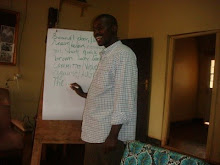METACOGNITION
Is being aware of your thinking as you perform specific tasks and then using this awareness to control what you are doing. The two majors of metacognition are:
- Knowledge and control of self
- Knowledge and control of task.
Both are essential for success in any area (academic or nonacademic)
A. Knowledge and Control of Self
Knowledge and control of self imply:
- Commitment (control)
- Attitudes (control)
- Attention (control)
Commitment: If students are not committed to learning, they probably won’t learn much. Before you begin studying English, ask yourself one question. Why do I want to study English? Is it because you want to, or because someone else wants you to? Like every decision in life, studying English must be something you want to do.
Attitudes are beliefs we have that affect how we perceive things and what we do. Students should see how to change their negative attitudes (this is not any value to me, I can’t do this, I have no control over what is happening here, where am I going to use English? I have studied English for long time, what if I fail? Are they going to chasse me? People will laugh at me if I make mistakes. I have to go to English speaking country…) into positive ones (everything is possible let’s work hard, ask for clarification, seek for a help, working in group…)
Attention (attentive): there are two basic types of attention: automatic and voluntary. Automatic attention is reflexive in nature – a reaction.
Voluntary attention is under conscious control. It is active rather than passive in nature.
B. Knowledge and Control of Task
The second major aspect of metacognition is knowledge and control of task. It involves four components:
- setting goals
- planning
- correcting for error
- evaluating
Setting goals: if you don’t know where you want to go, you probably won’t get there. Setting goals allows you to focus on what is important and ignore what is not. Your actions become more efficient because you know what you are looking for.
Planning: planning involves the deliberate selections of strategies to fulfill specific goals. That is, once you have identified a goal you begin to generate strategies for accomplishment the goal.
Correcting for error: the third aspect of knowledge and control of task is correcting for error. Here the student changes his or her plan based on negative and positive “feed – back” - how close or far way a student is accomplishing the goal. Periodically students may assess their progress toward the goal they have established and then change their behavior if necessary.
Evaluating: evaluating, the final aspect of knowledge and control of task, deals with post – assessment of how well the task went. After students have completed a task, they might ask themselves such questions: - Did I accomplish my goal? How close did I come if it wasn’t totally successful? What did I do that didn’t work?






No comments:
Post a Comment